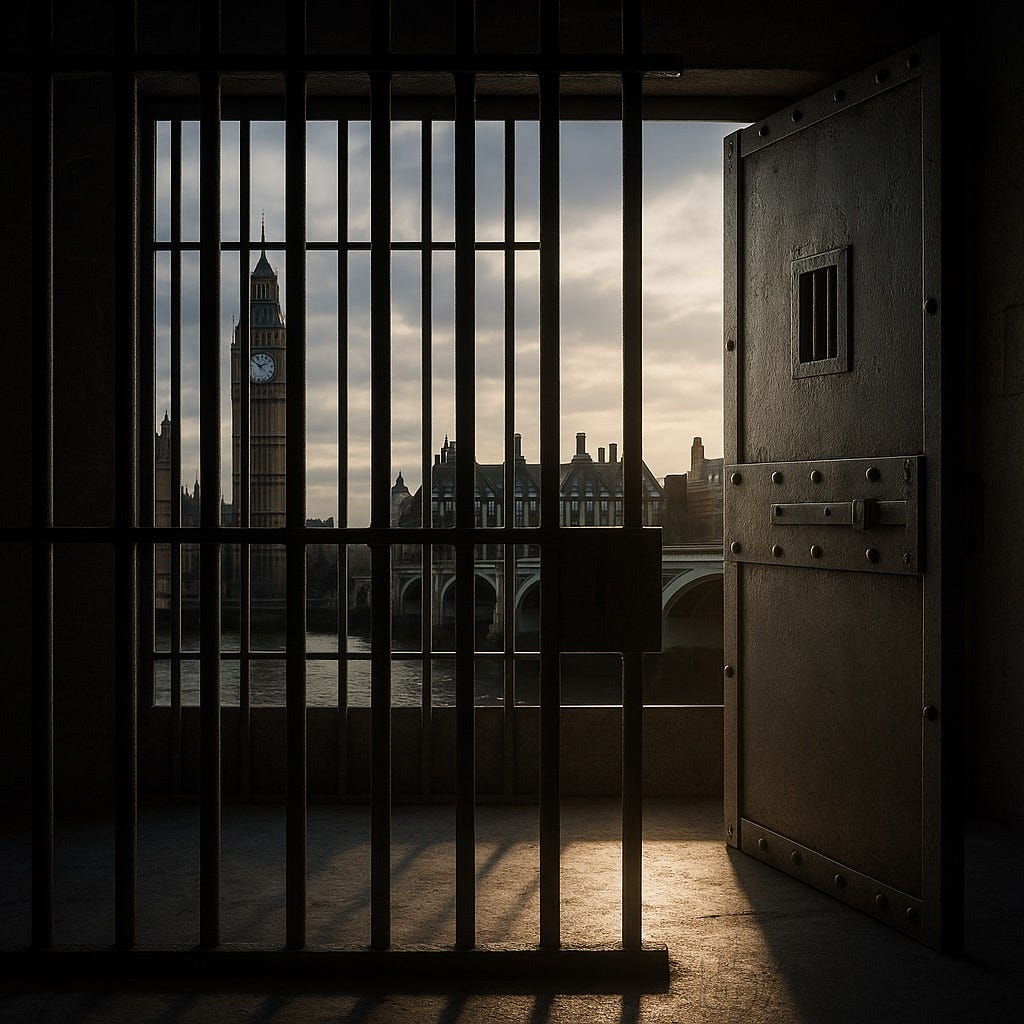The Prison Blame Game: A System in Collapse
We Need to Pin the Blame On the Donkey Responsible
GRIT: The Prison Blame Game – A System in Collapse
It starts with one man walking free who should not have. Then another. And another. At first it sounds like bad luck or a one-off administrative blunder. But by the time the total hits 262 prisoners released by mistake in a single year, it is no accident. It is a symptom of a system that is falling apart. Britain’s prisons are bursting, the staff are burnt out, and the safeguards that once held the line have been quietly stripped away. Behind the chaos lies not carelessness, but political neglect dressed up as efficiency.
A Decade of Decline
Ten years ago, the number of prisoners wrongly released hovered around fifty to seventy a year, serious enough but manageable. By 2024, the figure had rocketed past two hundred. That is not a clerical glitch, it is a meltdown.
The Ministry of Justice’s own data lays it bare:
2015–16: 64 released in error
2019–20: 50
2022–23: 81
2023–24: 115
2024–25: 262
Each number represents someone who should have been behind bars, and a victim whose faith in the justice system is further shredded.
The Human Cost
Take Hadush Gerberslasie Kebatu, convicted of sexually assaulting a 14-year-old girl and another woman. He was freed by mistake from HMP Chelmsford ahead of deportation, prompting a national manhunt. Or Amari Ward, who was released under a government “early release” scheme despite being ineligible. Within hours, he allegedly committed another sexual assault.
And this is nothing new. In 2019, Joseph McCann was wrongly left at large after probation errors. He went on a violent spree of rape and kidnap. A few years earlier, Ryan Byrne, a convicted armed robber, walked out of Wandsworth Prison after an administrative slip-up and taunted police online while on the run.
These are not harmless men. These are violent, dangerous offenders, the kind who should never have been given the chance to walk free, even for a day.
Pin the Blame Where It Rests
When the dust settles, they will say it was a paperwork error. Some exhausted officer, probably from a low-cost private operator, will be hung out to dry. There will be talk of “training reviews” and “internal process adjustments,” and the minister will solemnly promise that “lessons will be learned.” But the real lesson is about money, and who withholds it.
The Treasury has squeezed our justice system until it gasps for breath. The Chancellor, Rachel Reeves, owns those purse strings. Her budgets decide whether prisons have enough officers, working systems, or even a margin of safety. If you pay people peanuts, you build a service on luck and goodwill, and luck runs out.
The Justice Secretary and Prisons Minister may not set the national budget, but they sit in Cabinet while it is set. Their silence is assent. If they stood up and fought for the officers holding the line, they could have made a difference. Instead, they kept the peace in the room and let the pressure rise in the cells.
We need to pin the blame where it truly rests, not on the prison staff doing their best with crumbs, but on the political class that built this shambles and called it reform.
The Reckoning
These are public servants spending public money. Their first loyalty is supposed to be to the public, to keep us safe, not to balance spreadsheets. If that loyalty has wavered, we have every right to call it out. The true danger is not the man who slips out of a prison door by mistake; it is the ministers who built a system where that mistake was bound to happen.
Until the government funds justice as if it matters, the errors will keep coming. Each mistaken release will be another headline, another victim, and another reminder that Britain’s prisons are not broken by chance, they are broken by choice.



